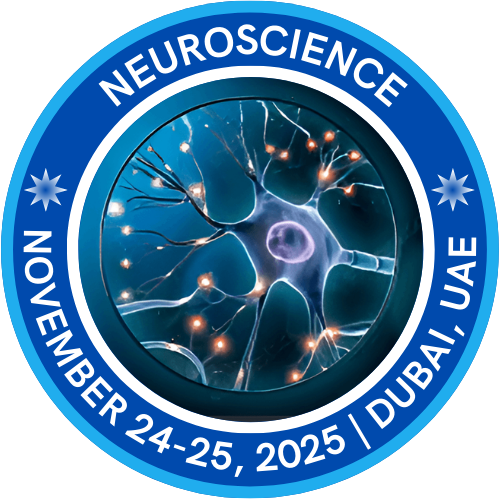We are delighted to welcome you to the International Conference on Neurology and Neuroscience, scheduled to be held on November 24, 2025, in the dynamic city of Dubai, UAE. This prestigious gathering brings together leading neuroscientists, researchers, clinicians, and healthcare professionals from around the world to explore the latest discoveries and advancements in brain science. With a strong focus on collaboration, innovation, and interdisciplinary dialogue, the conference aims to ignite meaningful discussions on cutting-edge topics such as neuroplasticity, neurodegenerative disorders, cognitive neuroscience, and emerging neurotechnologies. Set against the vibrant backdrop of Dubai, a hub of innovation and culture, this event promises not only insightful sessions and expert-led discussions but also valuable networking opportunities that will inspire new partnerships and shape the future of neuroscience.
Neuroscience is a vast and dynamic interdisciplinary field dedicated to the exploration of the nervous system one of the most complex systems in the human body. It encompasses the study of the brain, spinal cord, neurons, and neural circuits that govern everything from basic motor skills to abstract thinking, emotions, and memory. Over the years, neuroscience has evolved beyond traditional biology, merging with cutting-edge disciplines like cognitive science, computational modeling, neuropharmacology, and artificial intelligence. This convergence has accelerated our understanding of how the brain functions at both micro and macro levels—from synaptic transmission to large-scale brain networks responsible for behavior and perception. Neuroscience plays a crucial role in diagnosing and treating neurological and psychiatric disorders such as epilepsy, multiple sclerosis, schizophrenia, depression, and Alzheimer’s disease. Researchers and clinicians are working tirelessly to uncover the underlying mechanisms of these conditions and to develop targeted therapies, brain stimulation techniques, and even brain-computer interfaces. Moreover, neuroscience is not only concerned with disease but also with human potential, exploring how we learn, adapt, and make decisions. As the field continues to break new ground, it holds the promise of transformative discoveries that can improve mental health care, optimize brain performance, and ultimately, deepen our understanding of what it means to be human.

The neuroscience industry is undergoing rapid growth due to the increasing global burden of neurological conditions such as dementia, stroke, epilepsy, and multiple sclerosis. With the aging population and advancements in neurotechnology, there is a significant rise in the demand for innovative diagnostics, treatments, and research tools. The development of non-invasive brain imaging techniques, neuromodulation devices, and brain-computer interfaces has opened new possibilities in both clinical and research domains. Governments and private sectors worldwide are boosting investments in neuroscience research, recognizing its critical role in understanding brain function and treating mental and neurological disorders. The global neuroscience market is expected to grow steadily over the next decade, with an emphasis on personalized medicine, digital health integration, and interdisciplinary collaboration. As awareness of mental and neurological health expands, regions like North America, Europe, and Asia-Pacific are emerging as key players in driving neuroscience innovation. This evolving landscape presents valuable opportunities for stakeholders in healthcare, academia, and industry to contribute to breakthroughs that enhance cognitive health and patient outcomes globally.